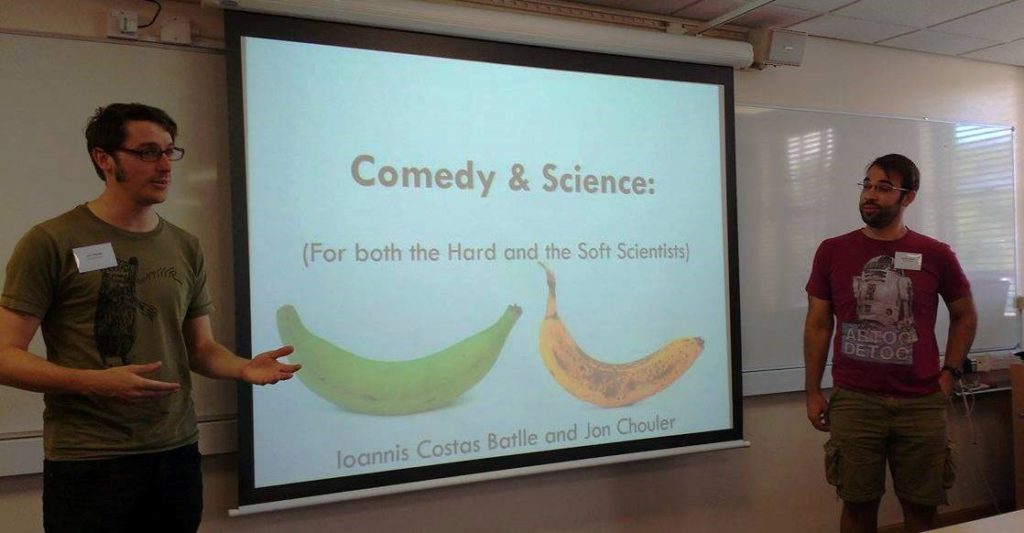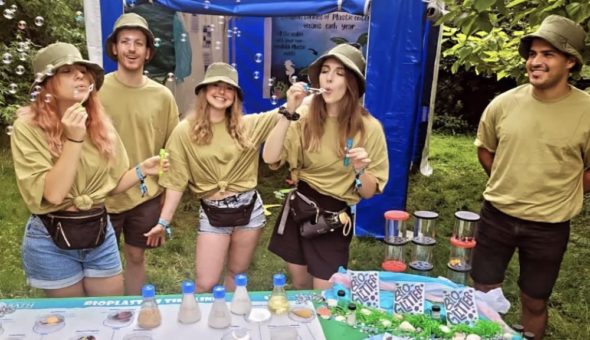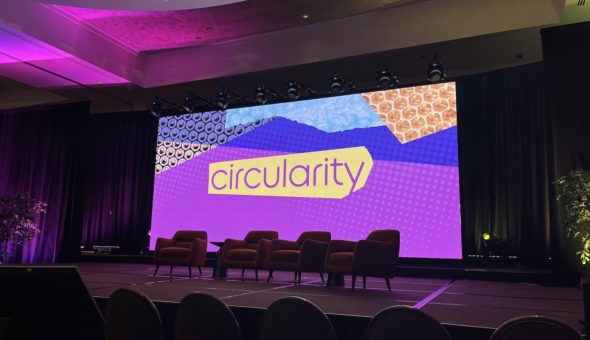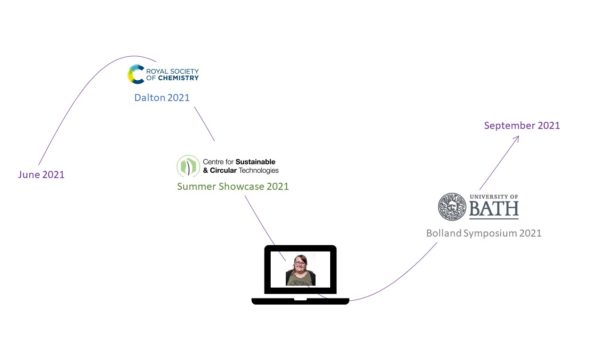This post was contributed by Jon Chouler
Did you hear the one about the academic and the comedian? Well, me neither, but have you ever heard of an academic comedian? In fact that's probably not very common either. However, let us not separate the academic and the comedian into entirely separate realms - since you academics out there could potentially learn a lot from a comedian, and it’s not just about how to be 'funny'.
A few weeks ago, 13 - 15 July, myself and fellow academic chum, Ioannis Costas-Batlle, went to the University of Kent - located in quaint little Canterbury, to discuss the usefulness of comedy for us aspiring scientists (hard and soft sorts). Indeed this year, we had the pleasure of attending the Science in Public 2016 conference, a cross-disciplinary forum for sharing all work related to science and its relationship to the public.
So for instance, we saw some great talks about: why solid state physics hasn't received quite the public popularity that its fellow astrophysics brethren has; how citizens have participated in nationwide science experiments and projects (check out this grand opportunity to count some Antarctic penguins); and also we played a cracking game that was about shaping the UK nuclear weapons policy post WW2 - it was very riveting.
Anyway, back to the comedy. Ioannis and I presented all about why we think comedy is really useful for academics - both for hard and soft scientists (here’s a cracking read written by Ioannis himself); namely because comedians are excellent delivers of points that you remember, very apt structurers of talks, and have a sterling speaking style (these skills sound rather useful for academics no?).

We learnt a lot about comedy in science too, from the workshops and panel discussions about the subject. Namely, comedy must be used in science with caution since it can be a rather divisive tool, may not appeal to certain crowds, and it may even detract from the science at times.
Nonetheless, I would still vouch for any scientists out there to at least observe and maybe even discuss with a comedian about how they are such effective communicators - I've had the pleasure of learning some of the tricks of the trade and it has really helped my presentation and communication skills.
So did you hear the one about the academic and the comedian? They had a really good time discussing communication skills and techniques and the academic appreciated the help.
Jon is in cohort '13 of the CSCT and is working towards his PhD with Dr Mirella di Lorenzo, Dr Petra Cameron and Dr Barbara Kasprzyk-Horden. See more info on Jon's work.



Saw a funny 'academic comedian' called Jack Heal as part of Bristol's Pint of Science (http://www.jackheal.com/).